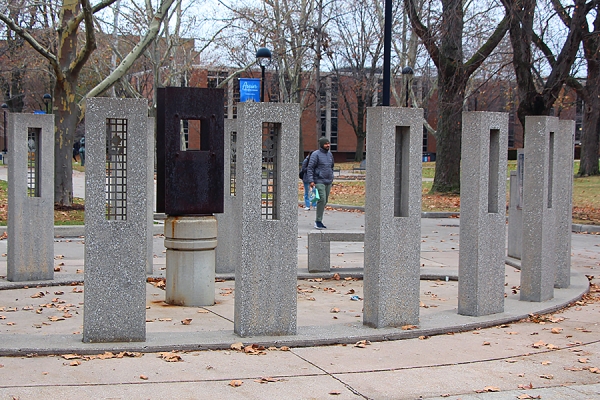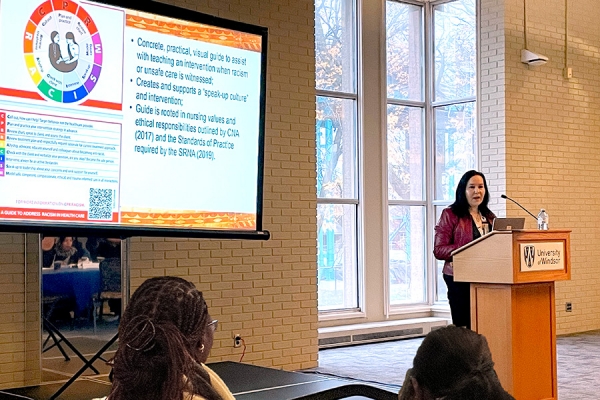 Research Infosource has named Windsor one of the top research universities in Canada.
Research Infosource has named Windsor one of the top research universities in Canada.
The University of Windsor has been named one of the top research universities in Canada, ranking No. 1 in garnering the greatest percentage of its total research funding from international governments.
The annual ranking, published by Research Infosource Inc., also rates Windsor as a powerhouse in research related to artificial intelligence. Windsor ranks No. 2 in Canada for the percentage of its publications related to artificial intelligence research.
“This ranking speaks to the bold and impactful contributions our researchers make at the international stage,” said Shanthi Johnson, UWindsor vice-president, research and innovation. “Our commitment to emerging technologies makes UWindsor a leader in AI research, contributing to our nation’s global reputation and competitiveness.”
Research Infosource Inc. is a research, consulting, and publishing firm that specializes in research and development analytics. It publishes annual rankings of Canadian universities, hospitals, colleges, and corporations that engage in R&D. The ranking published Thursday is called Canada’s Innovation Leaders 2024 and is based on data from the fiscal year ending in 2023.
The University of Windsor ranks fourth in Canada for the total amount of funding it brings in from international governments, sixth for the percentage of its research income coming from not-for-profit organizations, and seventh in the percentage of its research income coming from corporations.
Dr. Johnson credited collaborations with the community, government, and industry partners for UWindsor’s high rankings in those important metrics. “UWindsor is not only competitive with larger comprehensive institutions, it surpasses them in several categories.”
Windsor’s showing in the Canada’s Innovation Leaders ranking follows recognition earlier this year as the most improved Canadian institution in the QS World University Rankings. The global list, released in June, ranked UWindsor 547 of the more than 5,600 universities evaluated worldwide, an improvement of about 100 spots since 2021.





